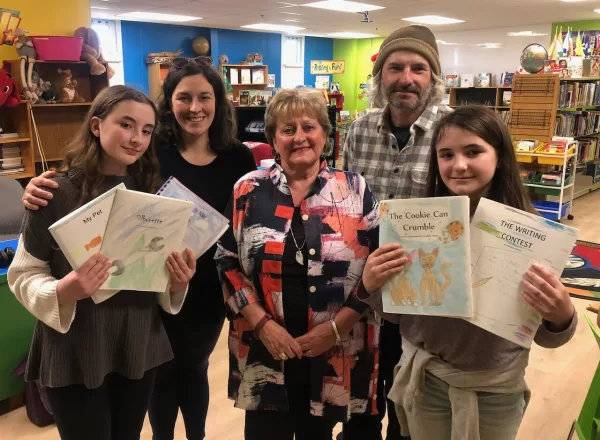
Co-owner and operator of Willow Farm, Greg Burton, says he and his partner Tessa Kautzman (and their toddler, Linus) spent their first year constantly learning.
Their little farm in Memramcook got going around the same time as the COVID-19 pandemic, which makes this their second summer.
Burton says that its been a steep learning curve, and they are still researching how to best use their land.
“We’re learning all the time. We made the decision to switch careers and start this from scratch, and there are lots of resources out there, but it still takes an incredible amount of energy to find those resources. To make use of them, and synthesize the knowledge that they contain.”
“I think there’s this preconception of farming as being not necessarily highly skilled work,” says Burton. “Especially when you’re working in trying to trying to farm sustainably, the amount of ecological knowledge and biological knowledge that is required is pretty intense. All that learning is an ongoing and constant thing.”
In just a year, the farm has made significant progress.
“Between our first year selling and our second year selling, it’s night and day I’d say, as far as what we’re learning in terms of our approaches…One big change is that we’re hoping to double our production… basically on the same space, so not really expanding the farm, but using the space that we have more efficiently and more intensively to produce more and sell more.”
Burton has also noticed that there is a renewed or growing interest in small farms, and purchasing produce from a farmer rather than a grocery chain.
“Whether that’s because of some of the publicity that issues around agriculture has had in the last year, partly because of the pandemic, or whether that’s because we’re listening more closely. As a developer as developing farmers, I’m not sure but I definitely have noticed that. I think it’s [the pandemic] highlighted issues with large scale food distribution models. Not just food, but supply chain and distribution models in general, that have moved policymakers to maybe rethink some of that a little bit. [It] started getting people to think about those distribution systems and where your lumber comes from, and where your food comes from, and the massive apparatus that’s in place that allows us to have all the things that we have access to all the time all year round. It’s shown how that system can be vulnerable. We see that in terms of like tripling prices and a number of goods, etc…I think for us, the way that we want to run our business is definitely very local, we like the idea of many smaller producers that are distributed in terms of their location rather than few large producers who distribute across large regions. For a number of reasons we prefer that kind of economic model is one that we’d like to support. That’s how we have structured our business and that’s how we lay out our business plan.”
Burton is very excited to bring visitors to the farm this summer, now that the province is on the path to green.
“I would love to just have people here. I would love to have people be able to stop by really comfortably, and just interact with them and have the farm be a space that’s more open to folks in the community to just kind of stop in and see what we’re doing and say hello. I think that’s one of the things that I’m most looking for forward to being at market also in a more relaxed fashion…General stress level is significant for us to mention. We’re managing it, but it’s a lot. I think that kind of the looming stress and restricted social contact from COVID-19 can’t be understated there. I think it’s a big deal, as far as contributing to just general stress in our lives, and feeling a little bit isolated in terms of having to kind of deal with everything on your own. I think that’s something to mention, just like mental health of farmworkers during this time and any worker’s mental health during COVID-19.”


















